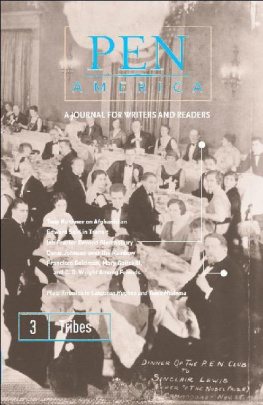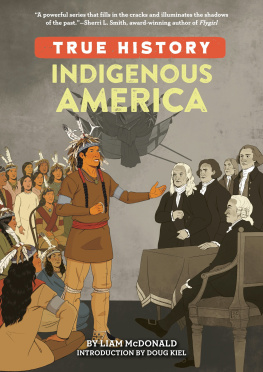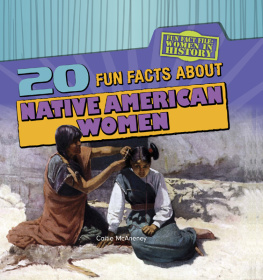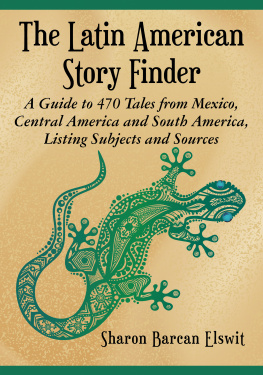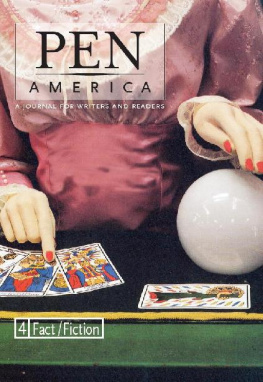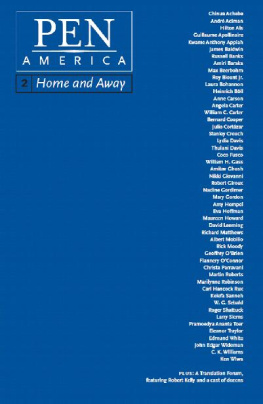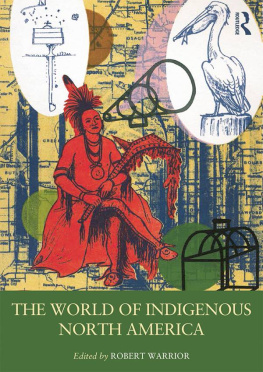PEN American Center - PEN America Issue 3: Tribes (PEN America: A Journal for Writers and Readers)
Here you can read online PEN American Center - PEN America Issue 3: Tribes (PEN America: A Journal for Writers and Readers) full text of the book (entire story) in english for free. Download pdf and epub, get meaning, cover and reviews about this ebook. year: 2002, publisher: PEN American Center, genre: Art. Description of the work, (preface) as well as reviews are available. Best literature library LitArk.com created for fans of good reading and offers a wide selection of genres:
Romance novel
Science fiction
Adventure
Detective
Science
History
Home and family
Prose
Art
Politics
Computer
Non-fiction
Religion
Business
Children
Humor
Choose a favorite category and find really read worthwhile books. Enjoy immersion in the world of imagination, feel the emotions of the characters or learn something new for yourself, make an fascinating discovery.
- Book:PEN America Issue 3: Tribes (PEN America: A Journal for Writers and Readers)
- Author:
- Publisher:PEN American Center
- Genre:
- Year:2002
- Rating:5 / 5
- Favourites:Add to favourites
- Your mark:
- 100
- 1
- 2
- 3
- 4
- 5
PEN America Issue 3: Tribes (PEN America: A Journal for Writers and Readers): summary, description and annotation
We offer to read an annotation, description, summary or preface (depends on what the author of the book "PEN America Issue 3: Tribes (PEN America: A Journal for Writers and Readers)" wrote himself). If you haven't found the necessary information about the book — write in the comments, we will try to find it.
PEN America Issue 3: Tribes (PEN America: A Journal for Writers and Readers) — read online for free the complete book (whole text) full work
Below is the text of the book, divided by pages. System saving the place of the last page read, allows you to conveniently read the book "PEN America Issue 3: Tribes (PEN America: A Journal for Writers and Readers)" online for free, without having to search again every time where you left off. Put a bookmark, and you can go to the page where you finished reading at any time.
Font size:
Interval:
Bookmark:

an affiliate of International PEN,
the worldwide association of writers
working to advance literature
and defend free expression.
eBook ISBN: 0-934638-40-3
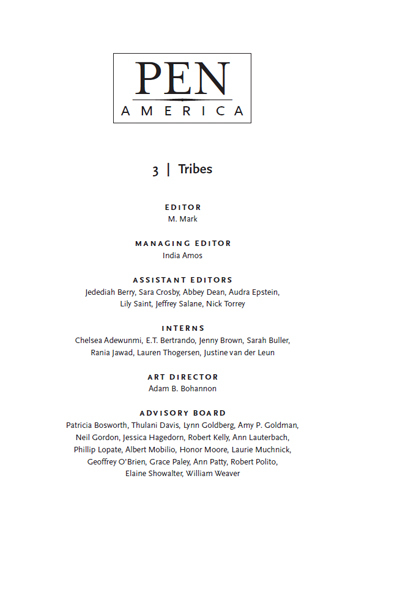
 The groups are formed with a view to renewing and re-establishing a literature that has, according to them, deteriorated to an appallingly low level.
The groups are formed with a view to renewing and re-establishing a literature that has, according to them, deteriorated to an appallingly low level. Their motto is: everything done prior to us is worthless; everything done after us can only exist because of us.
Their motto is: everything done prior to us is worthless; everything done after us can only exist because of us. The group thoroughly despises its contemporaries, particularly rival groups to which the fact of its existence and the claims it makes inevitably give rise.
The group thoroughly despises its contemporaries, particularly rival groups to which the fact of its existence and the claims it makes inevitably give rise. The very way the group works leads, through splits, divergences, deviations, and exclusions, to its fairly rapid destruction.
The very way the group works leads, through splits, divergences, deviations, and exclusions, to its fairly rapid destruction. The Oulipo is not a closed group; it can be enlarged through the cooptation of new members. No one can be expelled from the Oulipo.
The Oulipo is not a closed group; it can be enlarged through the cooptation of new members. No one can be expelled from the Oulipo. Conversely, no one can resign. The dead continue to belong to the Oulipo.
Conversely, no one can resign. The dead continue to belong to the Oulipo. One may relinquish membership of the Oulipo under the following circumstances: suicide may be committed in the presence of an officer of the court, who then ascertains that, according to the Oulipians explicit last wishes, his suicide was intended to release him from the Oulipo and restore him his freedom of maneuver for the rest of eternity.
One may relinquish membership of the Oulipo under the following circumstances: suicide may be committed in the presence of an officer of the court, who then ascertains that, according to the Oulipians explicit last wishes, his suicide was intended to release him from the Oulipo and restore him his freedom of maneuver for the rest of eternity.Font size:
Interval:
Bookmark:
Similar books «PEN America Issue 3: Tribes (PEN America: A Journal for Writers and Readers)»
Look at similar books to PEN America Issue 3: Tribes (PEN America: A Journal for Writers and Readers). We have selected literature similar in name and meaning in the hope of providing readers with more options to find new, interesting, not yet read works.
Discussion, reviews of the book PEN America Issue 3: Tribes (PEN America: A Journal for Writers and Readers) and just readers' own opinions. Leave your comments, write what you think about the work, its meaning or the main characters. Specify what exactly you liked and what you didn't like, and why you think so.

